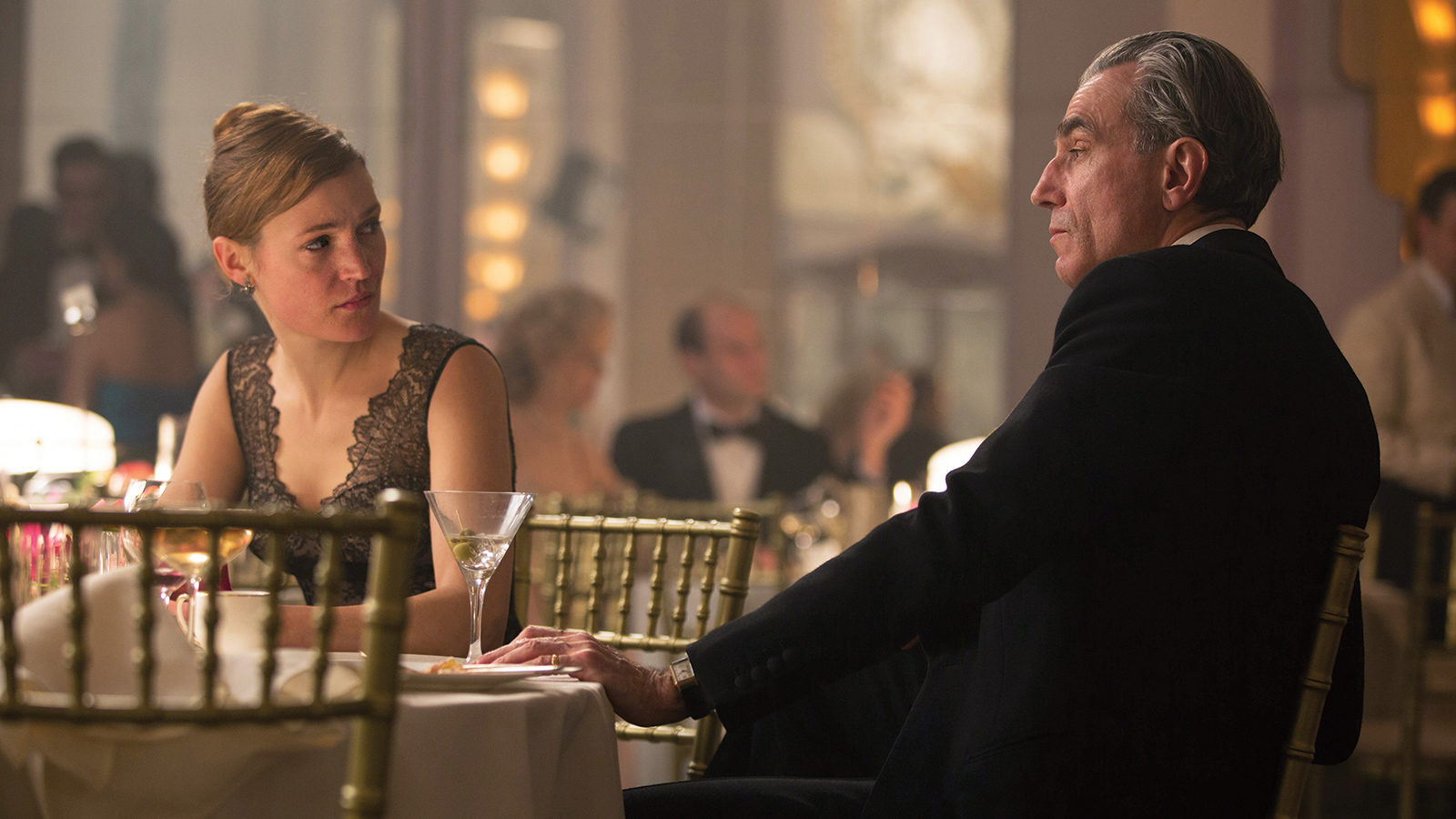
Phantom Thread takes us into 1950s London as world renowned clothier Reynolds Woodcock (Daniel Day-Lewis) runs his studio House of Woodcock alongside his sister Cyril (Lesley Manville). Reynolds soon meets young waitress Alma (Vicky Krieps) who becomes his latest muse and lover. Their tumultuous love affair has a profound effect on both of their lives.
Phantom Thread is an unconventional love story, not about a healthy relationship as we’re used to seeing on screen, but one built on codependency and toxicity. Reynolds and Alma grow closer through Alma’s need to be all that Reynolds has to turn to, and Reynolds’ need to have his wants and desires centered at all times serve are symbiotic, fueling each other and their relationship.
When we first meet Reynolds, it is clear that his love is for his work; the fashion and the dresses that he creates. Women are merely a means to that end, serving as muses and inspiration for what truly captures his attention. Alma also begins her journey as Reynolds’ partner unhealthily, a young woman who has never felt comfortable in her own skin who finally feels a sense of confidence and importance while within his gaze. These unhealthy mindsets are a toxic mix, feeding off of each other and creating a relationship that while lasting, does not serve the best interests of its participants.
While Phantom Thread is a serviceable movie, the story itself doesn’t pull you in and its underlying theme is interesting but not enough to salvage it. Lewis and Krieps perform ably as the lead characters but aren’t as electric as the months of hype led us to believe. The score for the film is great on the other hand. Varied styles from hints of jazz to more classical stuff. Still, I’d wait until you can watch it at home.
Image: Focus Features

